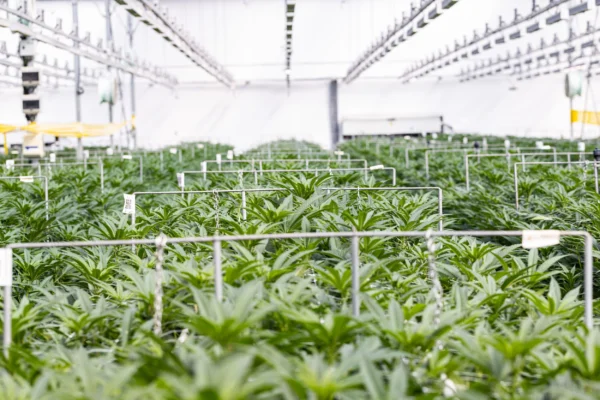How long medical cannabis stays in your system can vary from person to person. Factors such as metabolism, frequency of use, prescribed dose, body composition, and method of use can all play a role.
Medical cannabis contains cannabinoids, like tetrahydrocannabinol (THC) and cannabidiol (CBD), which interact with your body in different ways.
For medical cannabis patients, understanding how long cannabis may remain in the body can help inform everyday decisions about work, travel, or driving, and support confidence in how treatment fits into daily life.
At a Glance
- Medical cannabis can remain detectable in the body for days or, in some cases, weeks after use. This depends on factors such as dose, frequency of use, metabolism, body fat, and how the medicine is taken. THC metabolites may be detectable for several weeks after the last dose.
- The effects of medical cannabis usually wear off much sooner than it remains detectable. This means you may no longer feel any effects even though small amounts of cannabinoids can still be identified in drug tests.
How Long Do the Effects of Cannabis Last?
Medical cannabis is intended to help manage symptoms, and its effects are usually felt for several hours. The exact duration can vary depending on the individual, the product prescribed, and how and when it is taken. In contrast, cannabinoids may remain detectable in the body for longer, even after the noticeable effects have worn off.
When starting medical cannabis or adjusting a dose, treatment is typically introduced gradually. The aim is to find the lowest effective dose that helps manage symptoms while minimising unwanted side effects, recognising that everyone responds differently.
Some people may experience side effects such as drowsiness, dizziness, or difficulty concentrating, particularly when beginning treatment or changing dose. If this happens, you should avoid driving, operating machinery, or carrying out tasks that require full attention.
Taking time to understand how medical cannabis affects you is an important part of using it safely.
What Factors Affect How Long Cannabis Stays in Your System?
Several factors can influence how long cannabis remains detectable in the body. Some of these relate to how medical cannabis is prescribed and used, while others are individual factors that vary from person to person.
Dosage and Frequency of Use
Regular or higher doses of medical cannabis can build up in the body, making them detectable for longer. Occasional use or smaller doses usually clear more quickly.
Metabolism
Metabolism plays an important role in how quickly cannabinoids are processed and eliminated. People with higher levels of the enzymes which break down cannabinoids may deactivate and eliminate cannabinoids from their systems quicker.
Age and Health
Younger or more active people tend to metabolise cannabis faster.
How You Take It
The way medical cannabis is taken can influence how quickly effects are felt and how long they last. When cannabis is inhaled, THC and CBD enter the bloodstream quickly and usually reach peak levels within minutes. When cannabis is taken orally, absorption can take longer, but the effects may last for a longer period. [1,2]
What is the Half-Life of Cannabis?
The “half-life” of a medicine is the standard measure that doctors use to understand how long it takes to process and remove it from your body. A medicine’s half-life isn’t always exact, because things like your age and health can change how long it stays in your system. But it’s a helpful guide for doctors to choose the right medicine and dose for you.
Cannabinoids, including THC and CBD, are processed by your liver and broken down into smaller substances called metabolites. These metabolites stick around longer and are what most tests detect.
With regular use of medical cannabis, these metabolites can build up over time and can result in traces of cannabis still being present in the body up to 60 days after a patient’s last dose [3].
For a deeper dive into cannabinoids, check out our blog CBD vs. THC: What’s the Difference?
THC and CBD: Do Different Cannabinoids Stay in Your System for Longer?
THC and CBD are processed by the body in different ways, which means they can remain detectable for different lengths of time. In general, THC is more likely to be detectable for longer periods, particularly with regular use, as it is stored in fatty tissues and released slowly over time. Depending on factors such as dose, frequency of use, and individual metabolism, THC metabolites may remain detectable for days or, in some cases, weeks.
CBD is also fat-soluble, but it is typically cleared from the body more quickly than THC, although this can vary between individuals. Research examining how long CBD remains detectable in the blood has found that in some cases, CBD was still present in plasma more than seven days after the last dose. You can read more about this in our dedicated article on how long CBD stays in the blood.
As with all cannabinoids, how long THC or CBD stays in your system can vary widely from person to person and depends on factors such as dosage, frequency of use, body composition, and the type of test used.
How is Cannabis Tested For?
Drug testing is not a routine part of medical cannabis treatment for majority of patients and is not required as part of ongoing care at Curaleaf Clinic. Testing is typically carried out only in specific situations, such as workplace policies or roadside checks, rather than as part of medical prescribing.
When testing does occur, it most commonly looks for the breakdown products of THC, the cannabinoid associated with intoxicating effects. Some testing methods are beginning to explore a wider range of cannabinoids.
The type of test used depends on the situation. Cannabis compounds are usually detected through samples of saliva, blood, or urine, each of which can identify the breakdown products of THC for different lengths of time after use.
The most common test looks to find the levels of 11-carboxy-tetrahydrocannabinol (11-COOH-THC) in each sample. 11-COOH-THC is non-intoxicating but indicates prior consumption of THC. Other tests look for 11-hydroxy-THC (11-OH-THC), which is an active breakdown product, with similar effects to THC.
Roadside drug testing by police commonly involves a saliva test to detect previous THC use when there is reason to suspect impaired driving. In the UK, driving with THC above the legal limit is an offence. Patients who have been legally prescribed medical cannabis may have a statutory medical defence if they are not impaired and are following their clinician’s advice, but it remains the driver’s responsibility to ensure they are safe and legally fit to drive.
Check out our blog to read more about medical cannabis and road safety.
Conclusion
Understanding how medical cannabis interacts with your body may help you feel more informed and confident when using medical cannabis.
If you have questions about how medical cannabis may affect activities such as driving or work our clinicians can help guide you. They will discuss these topics with you as part of your care and provide advice based on your individual treatment plan and circumstances.
If you would like to speak with a specialist at Curaleaf Clinic, you can complete our free online eligibility assessment. We’ll review your GP and any relevant specialist records to determine whether a consultation may be appropriate. Our team is available to support you if you have any questions along the way.
References
[1] https://www.thepermanentejournal.org/doi/pdf/10.7812/TPP/19.200
[2] https://bpspubs.onlinelibrary.wiley.com/doi/full/10.1111/bcp.13710









